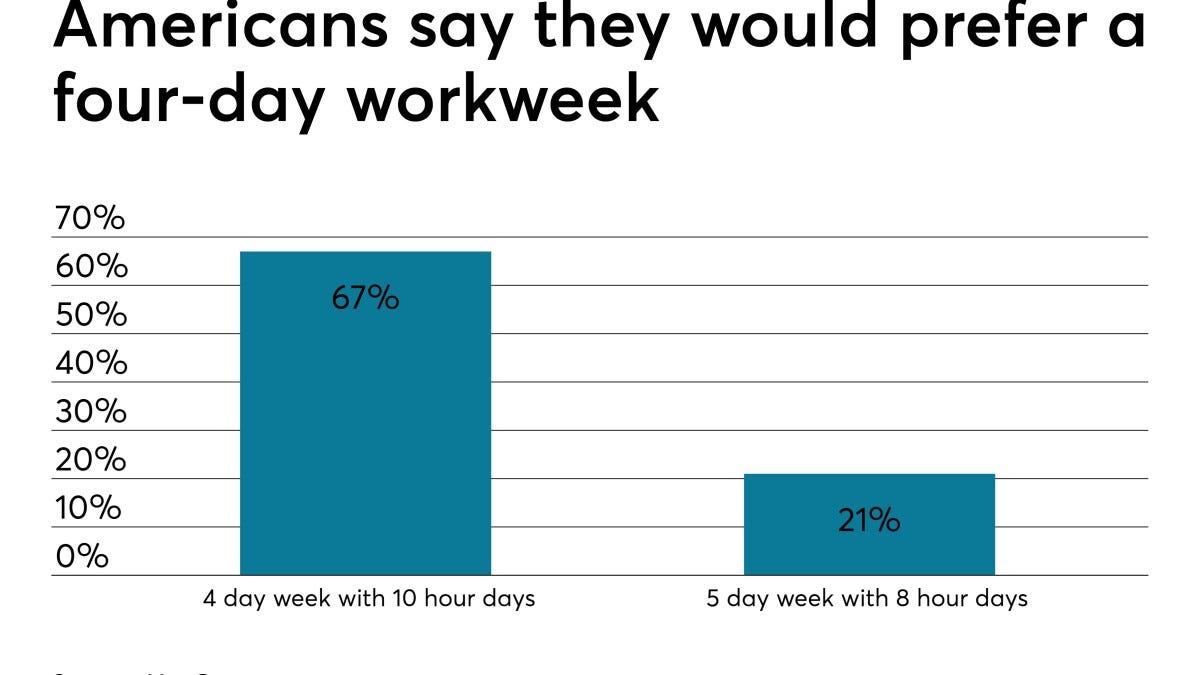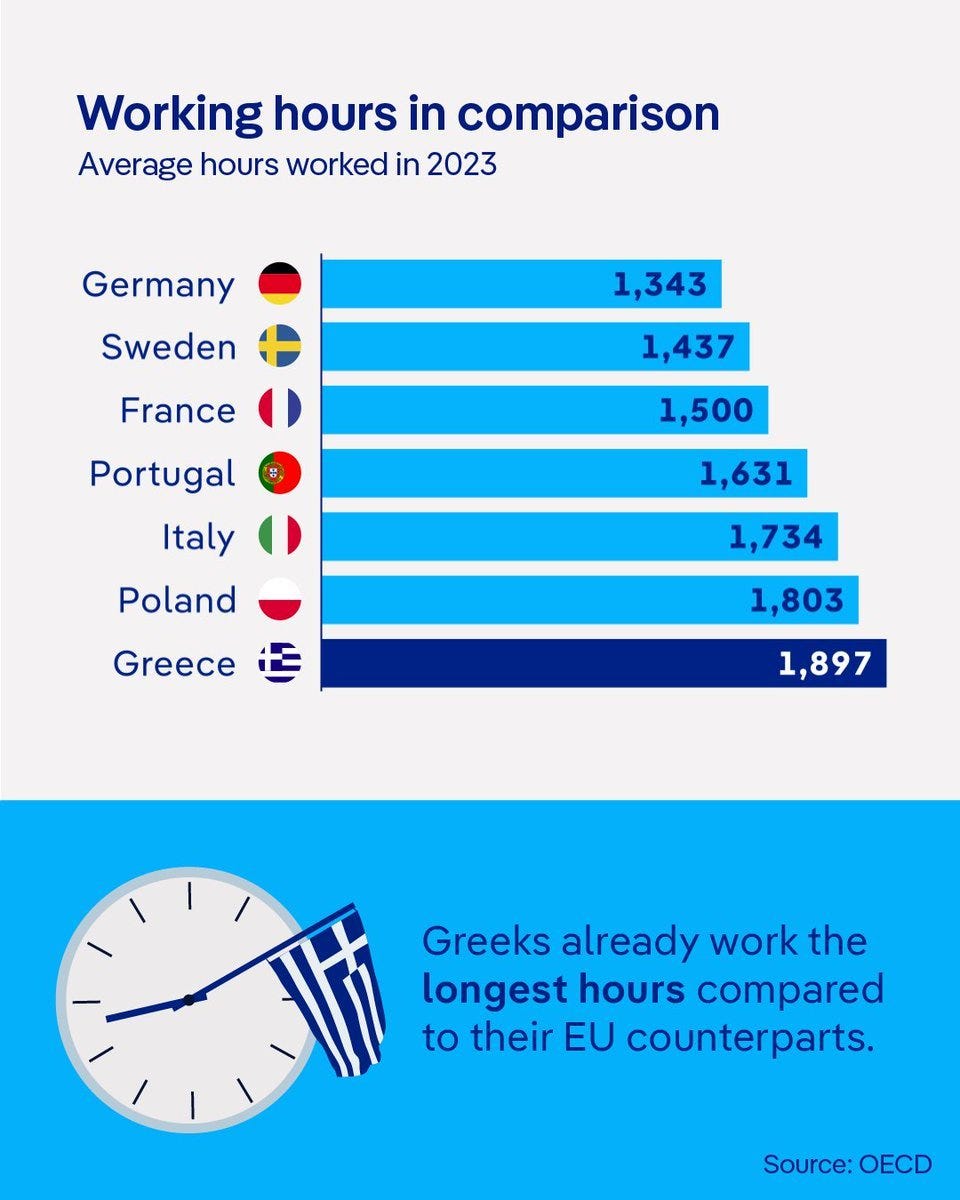Last month, Greece made headlines by introducing a 6-day work week for all businesses and citizens across the country. At first glance, the idea might seem counterintuitive: why would anyone agree to work an extra day, even if it means fewer hours each day?
This policy has sparked debates not only within Greece but also internationally, raising questions about its potential impact and feasibility in other countries, particularly the United States.
Greece’s New Work Week: The Rationale
Greece’s decision to implement a 6-day work week is part of a broader strategy to address several economic and demographic challenges. The country is grappling with a shrinking population and a shortage of skilled workers. By instituting this policy, Greece aims to boost productivity and stimulate economic growth.
The new law, effective from July 2024, applies specifically to private businesses providing round-the-clock services. Unlike some countries experimenting with a 4-day work week to enhance employee well-being and productivity, Greece’s approach is geared towards increasing the overall number of working hours. The plan allows for up to 48 hours of work per week, with employees earning an additional 40% on their sixth day.
A Closer Look at the Policy
This 6-day work week, often referred to as a “scheme” by critics, primarily affects industries such as manufacturing, where an extended workweek might be seen as a solution to issues like undeclared work and unpaid overtime. Conservative lawmakers believe this measure will not only address the skills shortage but also provide a boost in income and operational resources for businesses. By emphasizing training and development, the policy aims to offer financial and employment relief, making it a comprehensive approach to addressing Greece’s economic challenges.
The American Perspective: A Tough Sell?
While Greece’s new work schedule represents a significant shift, it’s worth considering how such a policy would fare in the United States. The U.S. work culture has been trending towards greater flexibility and work-life balance, particularly in the wake of the pandemic. Many American businesses are exploring or have already adopted the 4-day work week, which emphasizes fewer hours per day to achieve the same productivity levels. This approach aligns with the ethos of “less is more,” suggesting that fewer hours can lead to increased focus and efficiency.

In contrast, Greece’s decision to extend the workweek might seem regressive to American workers who have grown accustomed to flexible schedules and an increased emphasis on personal time. The U.S. has seen success with the 4-day work week model, with numerous studies indicating no loss of productivity and, in many cases, improved employee satisfaction and performance.
Work Hours in Context

Interestingly, Greece already has one of the longest workweeks in Europe. Greeks work an average of 41 hours per week, compared to the European Union average of 39.8 hours. Despite working longer hours, Greeks also face lower wages compared to their European counterparts. This context is crucial when evaluating the potential impact of the 6-day work week, as it highlights existing disparities and the potential strain on workers who are already operating at high capacity.
Conclusion
Greece’s 6-day work week is a bold move designed to tackle specific economic and demographic challenges. While it may offer some benefits in terms of productivity and business operations, it stands in stark contrast to the growing global trend towards reduced work hours and increased flexibility.
As Greece navigates this new approach, it’ll be interesting to observe the outcomes and whether it could offer any lessons for other countries grappling with their own labor market issues. For now, it’s safe to say there’s not much debate in the U.S. and many other countries about whether longer work weeks with shorter daily hours or shorter, more flexible schedules are better suited to the needs of the modern workforce.

